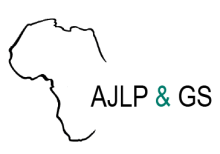/ library resources
Showing items 1 through 9 of 16.This publication is a product of the GEF-funded FAO project ‘Decision Support for Mainstreaming and Scaling Out Sustainable Land Management (DS-SLM)’ which has developed a decision support framework (DSF).
Customary land institutions (CLIs) are social institutions that define local land governance in communities. Strengthening community rights continues to be an essential land policy goal, and several studies have focused on ways to improve local land governance through CLIs.
This study addresses the significant issue of land fragmentation in Ethiopia, which is characterized by small, irregular, scattered parcels with no or adequate road access.
While climate services for small-scale farmers are gaining recognition for contributing to adaptation and resilience to climate variability and change, their provision in developing countries remains a critical challenge.
Sustainable land management (SLM) entails the judicious use of land resources, incorporating soils, water, animals, and plants, to meet dynamic human needs, while concurrently safeguarding the sustained use of these resources and preserving their environmental functions.
A wealth of publicly available satellite data and open-source models allowed researchers to measure carbon stocks in a watershed in India, despite a paucity of on-the-ground data.
Background and context
El Código nacional de recursos naturales renovables y de protección del medio ambiente, consta de 340 artículos organizados en dos libros: Del Ambiente (Libro Primero) y De la Propiedad, Uso e Influencia Ambiental de los Recursos Naturales Renovables (Libro Segundo).
Paginering
Land Library Search
Through our robust search engine, you can search for any item of the over 73,000 highly curated resources in the Land Library.
If you would like to find an overview of what is possible, feel free to peruse the Search Guide.







